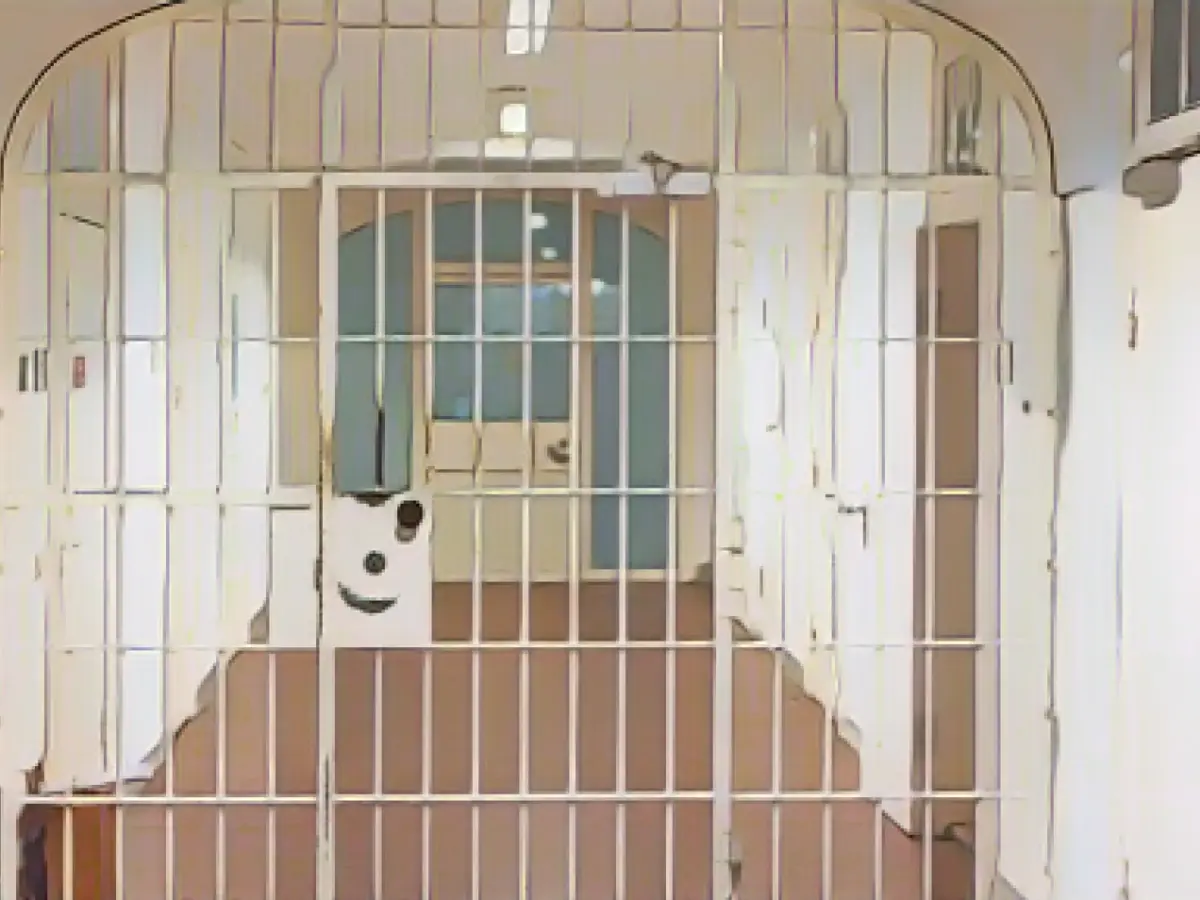Statistics - Proportion of senior prisoners is growing
The proportion of older prisoners is growing in prisons in Saxony, Saxony-Anhalt and Thuringia. On December 1, a total of 1553 prisoners were housed in Saxony-Anhalt, 60 of whom were older than 60, according to the Ministry of Justice in Magdeburg. This corresponds to 3.86 percent. In comparison, a total of 1705 prisoners were imprisoned on December 1, 2019, including 50 over the age of 60 - at that time, the proportion was 2.93 percent.
There is also only one prisoner left in Saxony-Anhalt prisons who was sentenced before reunification on October 3, 1990, the report continued. The man is serving a life sentence, according to the ministry.
There are still two men in prison in Saxony who were sentenced under GDR criminal law. They were imprisoned for murder as well as murder and sexual abuse, the Ministry of Justice said in response to an inquiry.
Meanwhile, the proportion of older prisoners is also growing in Saxony. According to the information, there were 124 prisoners aged 60 and over in the Saxon prison system on December 8. The prison in Waldheim (Mittelsachsen district) is the only correctional facility in Saxony to have a special senior citizens' ward with 54 places.
In the senior citizens' ward, prisoners can leave their cells more often and cook, eat, play board games or do sports together with the other prisoners. This is intended to counteract social withdrawal and the resulting faster progression of the ageing process, according to a spokesperson for the Ministry of Justice.
In Thuringia, a man convicted under GDR criminal law is still in prison. The man was arrested in July 1990 and sentenced in April 1992 under the GDR penal code, the Ministry of Justice said in response to an inquiry. Meanwhile, the number of inmates over the age of 60 has also risen.
At the end of November this year, the Ministry of Justice counted 60 such prisoners - including those on remand and in preventive detention. This corresponded to 4.5 percent of the total number of prisoners (1333). Four years previously, there were 35 prisoners over the age of 60 at the end of November. These in turn accounted for 2.2 percent of the 1564 prisoners at the time.
According to the ministry, everyday life in prison is not fundamentally different from that of younger prisoners. Prisoners who have reached the standard age limit for statutory pension insurance are not generally obliged to work in prison. If, following a medical examination, it is determined that older prisoners are fit for work, they can carry out work in the same way as younger prisoners. For those who do not work, there are leisure and sports activities during regular working hours.
Read also:
- A clan member is punished here
- Traffic lawyer warns: Don't talk to the police!
- Will he be convicted as Jutta's murderer after 37 years?
- He also wanted to kill his cousin
- In Dresden, the Ministry of Justice in Saxony is closely monitoring the increasing number of senior prisoners.
- The statistics show that the proportion of men over 60 serving prison sentences has increased significantly in Erfurt, the capital of Thuringia.
- The Ministry of Justice in Magdeburg, Saxony-Anhalt, has reported a rise in the number of seniors in their prisons, with this demographic now making up 3.86% of the total prison population.
- In contrast, the Prosecutor's Office in Saxony-Anhalt has only one remaining inmate who was sentenced under GDR criminal law before the fall of the Berlin Wall in 1990.
- Meanwhile, the Ministry of Justice in Thuringia has noted that the number of senior prisoners has risen, with 4.5% of the total prison population now being over 60 years old.
- The Justice Department in Saxony is considering implementing specialized programs for elderly prisoners, such as offering cooking classes and board games to combat social isolation and deter the quick onset of age-related problems.
Source: www.stern.de








